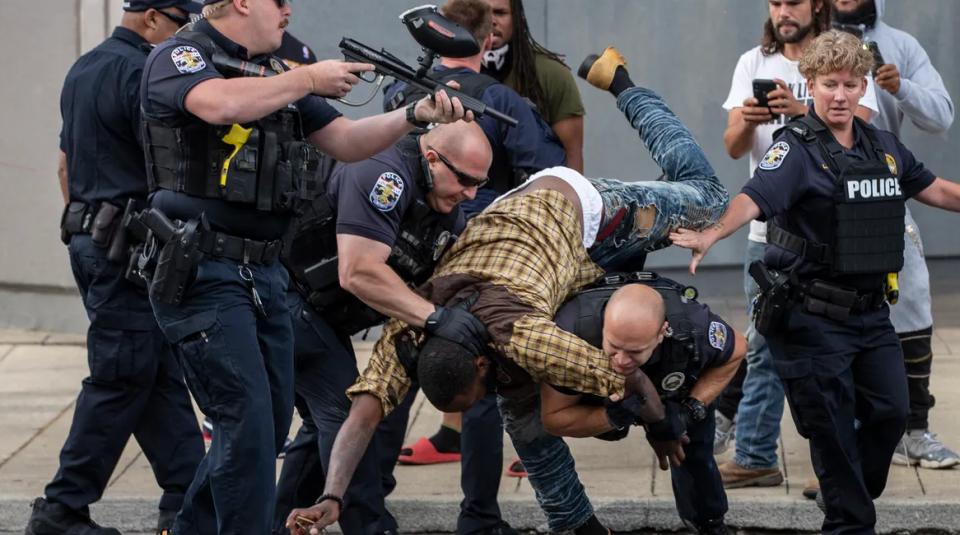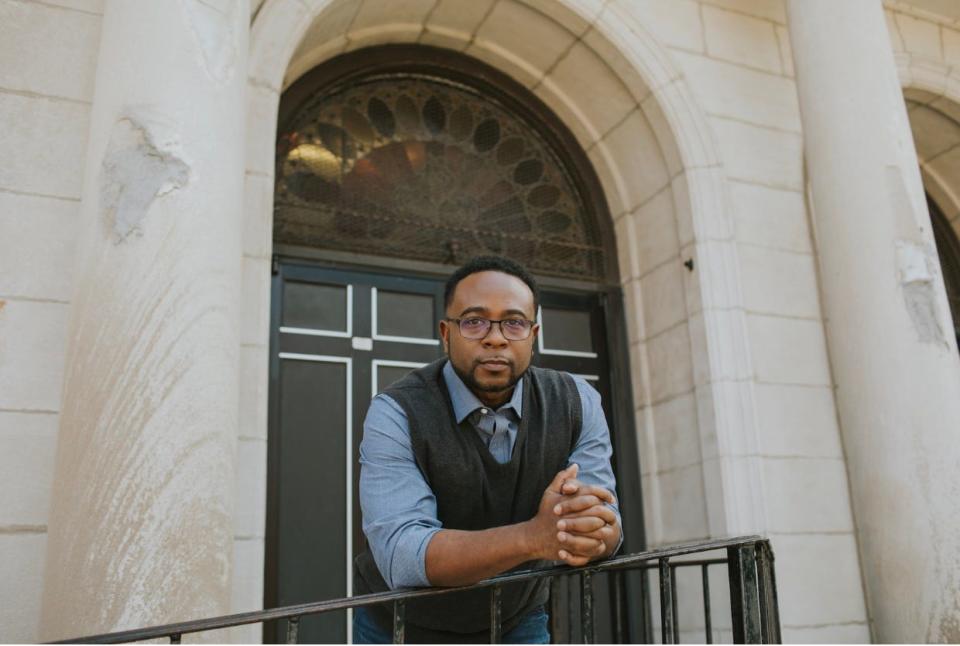Free Speech violations are the most troubling part of the DOJ report on Louisville police
On Wednesday, the Department of Justice released a far-reaching report about the Louisville Metro Police Department and the Louisville Metro Government. Spurred in part by the murder of Breonna Taylor in 2020, the report merited a visit from U.S. Attorney General Merrick Garland and made national news.
The investigators found that Louisville police engaged “in a pattern or practice of conduct that deprives people of their rights under the Constitution and federal law.” These violations included unreasonable use of police dogs and tasers, deficient responses to domestic abuse and sexual assault allegations (including against their own officers), and aggressive policing “especially against Black people.”
Of the many abuses the Department of Justice report detailed, the most troubling is that “LMPD violates the rights of people engaged in protected speech critical of policing.”
More:$40 million in Louisville police misconduct settlements: Here are some of the cases
Police violated First Amendment right to free speech
Unfortunately, given the current structure of law enforcement in Louisville and around the country, it is not surprising that abuses of power occur. But when the right to free speech− especially protesting police brutality−is curtailed we move from policing to a police state.
The report related several incidents of police retaliating against protesters who were using their First Amendment free speech rights to object to police violence. During one protest, a young Black woman in Jefferson Square Park stood calmly even though she was surrounded by police. Then an officer suddenly rushed her and “hit her twice in the chest with his riot stick, then grabbed her by the throat, choking the air out of her as he slammed her up against a squad car then down to the concrete path.”
Louisville police impeded the work of journalists who covered police protests. “Some officers used force against journalists who were committing no crimes, posing no safety risk, and not resisting or evading arrest.”
Police officers in Louisville also engaged “content-based discrimination” where they responded to different types of protesters differently based on the group’s perceived ideology. A planning document by LMPD described Black Lives Matter protestors as having “the potential for violence” and participants as “generally uncooperative” and “leaderless.”
Meanwhile the same document described the Three Percenters—classified as a hate group by Canada, the Anti-Defamation League and the Southern Poverty Law Center—as people who “believe law enforcement has been handcuffed by politics and want to help us do what they think is right.”

More:Louisville police contract negotiations won't be made public. Why some want to change that
The unnecessary escalation, violence and violation of civil rights are repulsive
The many instances of unnecessary escalation, violence and violation of civil rights are repulsive. And as this investigation confirms, the failure for police to act in accordance with their solemn task can turn deadly.
The only aspect more disturbing than abuse at the hands of police is the inability to speak out against it.
The Louisville Metro Police Department has been shown to retaliate against protected speech and lawful protests against police. These actions serve to intimidate community members into silence so that officers can evade accountability and the egregious behaviors of some on the force can continue.
In 1791, the authors of the Bill of Rights proposed the First Amendment because they were wary of authoritarian control like they felt Britain had exercised over the North American colonies. The first protection against such heavy-handed restrictions was the ability to publicly protest the authorities.
By engaging in patterns and practices that quash protests, demonstrations and constitutionally protected speech, the Louisville police inhibit the kind of dissent that ensures accountability and freedom.
Acclaimed author Zora Neale Hurston wrote, “If you are silent about your pain, they’ll kill you and say you enjoyed it.”
If we cannot protest our own maltreatment at the hands of police, then nothing will change and those in power will say it doesn’t need to.

Jemar Tisby, PhD is a professor of history at Simmons College of Kentucky. He wrote the bestselling book The Color of Compromise and How to Fight Racism. He writes frequently at JemarTisby.Substack.com.
This article originally appeared on Louisville Courier Journal: Free Speech violations are the worst part of DOJ report on Louisville

